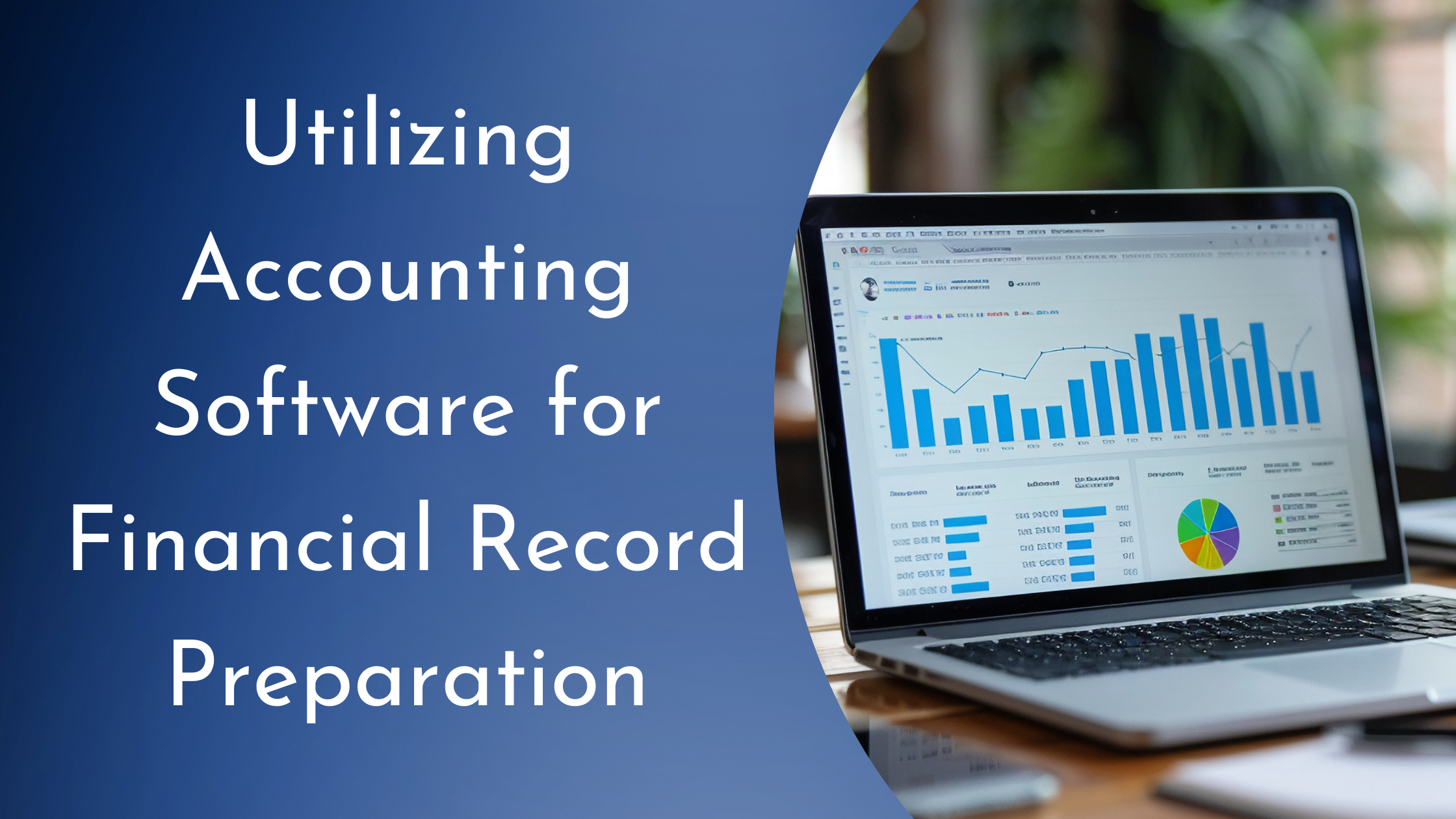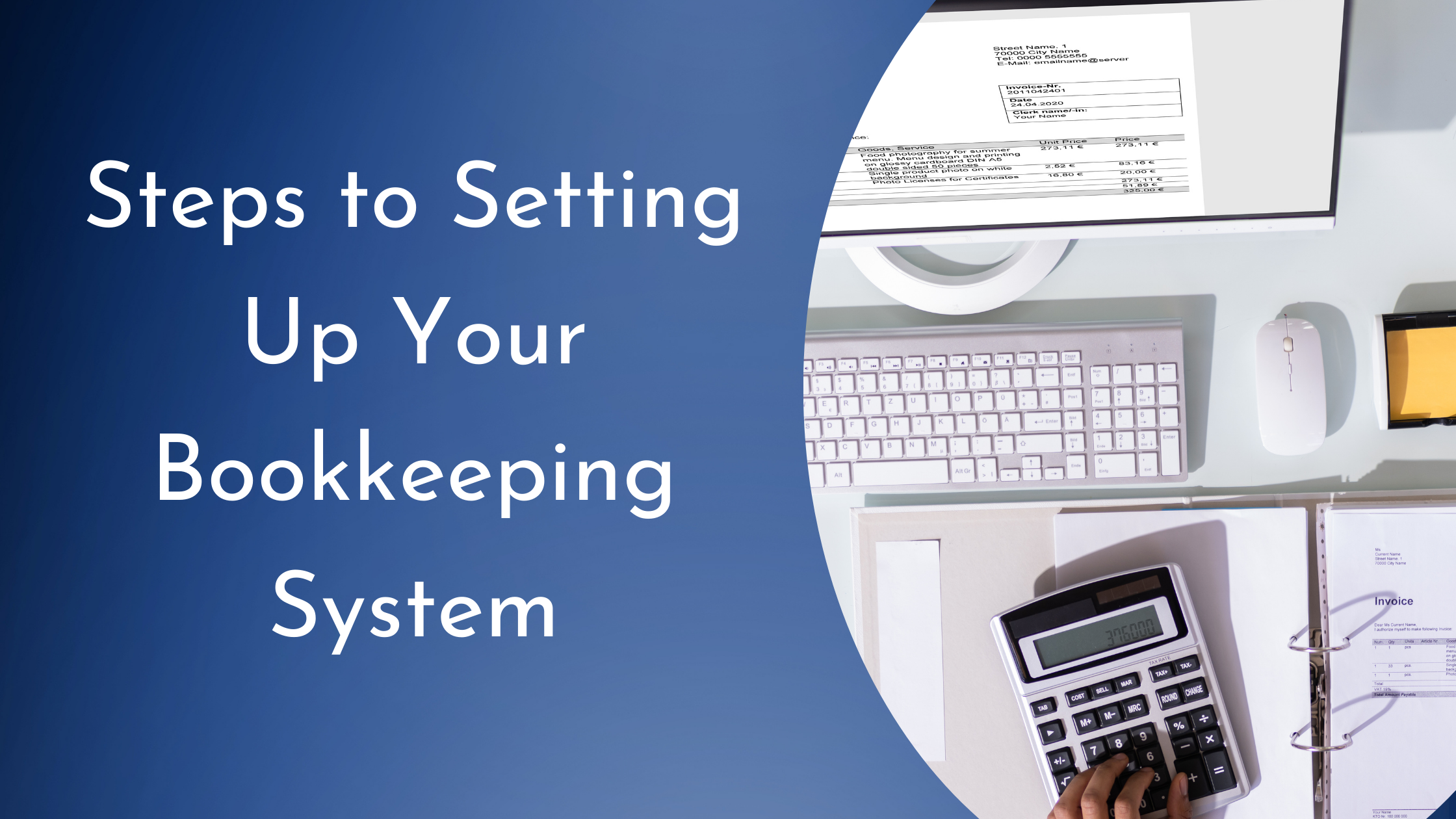Category: Accounting
Financial Statements Simplified: A Step-by-Step Guide for Small Businesses
- October 07, 2024
As a small business owner, understanding your financial statements is one of the most crucial steps toward maintaining financial health and ensuring your company’s growth. Whether you’re just starting or have been managing your business for years, clear insight into your company’s financials empowers you to make informed decisions that drive success. In this guide, we’ll walk you through the essential financial documents you need to grasp, why they’re important, and how they help you analyze your business performance.
What Are Financial Statements?
Financial statements are formal records that give you a snapshot of your company’s financial health. They provide essential information about your revenues, expenses, profitability, and overall financial position. Typically, financial statements include three core documents:
- Income Statement
An income statement, also known as a profit and loss statement, is crucial for understanding your business’s financial performance. It details operating revenues, operating expenses, and any gains or losses over a specific period. By analyzing this statement, you can gain insights into profitability and identify areas for improvement, making it a vital tool for financial planning and analysis.
- Balance Sheet
The balance sheet provides a comprehensive overview of your business’s financial position at a specific moment. It summarizes assets (what your business owns), liabilities (what it owes), and owner’s equity. This statement is essential for assessing the company’s stability and financial health, making it an important resource for investors and stakeholders.
- Cash Flow Statement
The cash flow statement highlights the flow of cash in and out of your business over a designated period. It breaks down cash movements into three sections: operating activities, investing activities, and financing activities. Understanding cash flow is critical for effective financial management, ensuring your business can meet its obligations and invest in growth opportunities.
By using financial statement analysis, you can better assess how your business is performing and identify areas for improvement. The ability to break down these statements is key to understanding whether your business is financially sound or in need of adjustments.
How to Get Started with Understanding Financial Statements
You might be wondering, “How do I get started if I have no background in accounting?” Fortunately, learning how to interpret financial statements doesn’t require a degree in accounting. There are various online resources, books, and courses designed to help you build your financial literacy over time. You can also consider hiring an expert or a professional service, especially if you’re struggling to stay on top of your financials. Here’s how to begin:
- Start by familiarizing yourself with the core financial documents: income statements, balance sheets, and cash flow statements.
- Look at financial trends over time to spot any potential issues or opportunities.
- Engage a professional accountant or consult with outsourcing accounting services for small businesses to guide you through the process.
If you’re unsure where to start, outsourced accounting firms can serve as a valuable partner in helping you gain a deeper understanding of your finances. You can also learn how to streamline your financial processes by working with experts in small business accounting.

For more details on accounting services for your business, visit Clarigro Accounting.
Why Small Business Owners Need to Understand Financial Statements
Running a small business without a strong grasp of your financials is like flying blind. Whether you’re thinking of applying for a loan, attracting investors, or planning for growth, your small business accounting practices should revolve around regular financial analysis. By doing so, you gain the ability to:
- Optimize for Profitability
- Manage cash flow more effectively
- Asset and Debt Management
- Reduce unnecessary expenses
- Strategize for long-term growth
- Make well-informed financial decisions
Even if you rely on accounting firms or in-house professionals to manage your books, understanding these documents allows you to stay informed about your company’s status. You can also collaborate more effectively with outsourced accounting services.
Breaking Down the Three Core Financial Statements

- Income Statement (Profit and Loss)
The income statement is a report that shows your business’s revenues and expenses over a specific period, typically quarterly or annually. Understanding your income statement helps you assess profitability by subtracting expenses from revenues, ultimately showing the net profit or loss.
For example, if you notice your expenses are rising, this could be a red flag indicating a need to review costs, streamline operations, or renegotiate contracts with suppliers. It’s also an excellent tool for analyzing sales trends and predicting future profitability.
- Balance Sheet
The balance sheet is an essential financial statements that provides a snapshot of your company’s financial health at a given moment in time. It breaks down into three parts:
- Assets – What your business owns, such as cash, equipment, and accounts receivable.
- Liabilities – What your business owes, including loans, credit card debt, and other payables.
- Owner’s Equity – The remaining value after liabilities are subtracted from assets.
A strong balance sheet indicates that your business has more assets than liabilities, providing a foundation for future growth and expansion. A weak balance sheet, however, may signal that it’s time to consider adjustments to improve financial stability.
- Cash Flow Statement
Managing cash flow is one of the biggest challenges for small businesses. A cash flow statement provides a clear picture of where your money is coming from and where it’s going. It divides cash flow into three sections:
- Operating activities – Cash generated from regular business operations.
- Investing activities – Cash used for investments, like purchasing equipment or real estate.
- Financing activities – Cash coming in or going out due to loans, stock issuances, or dividends.
A healthy cash flow is vital for covering day-to-day expenses, managing debt, and reinvesting in the business. Reviewing this statement regularly helps ensure that you can maintain smooth operations even during downturns.
Benefits of Outsourcing Accounting Services
Many small business owners find that keeping track of their financial statements is overwhelming, which is why many turn to outsourced accounting firms. Outsourcing allows you to focus on growing your business while experts manage the intricacies of accounting, bookkeeping, and financial statement analysis. Explore our local bookkeeping services near you.
For example, outsourcing to professionals who specialize in accounting services in the USA can provide you with valuable insights, ensure compliance with tax laws, and help optimize cash flow management. Additionally, services such as payroll outsourcing services allow you to streamline operations and reduce administrative burdens, freeing up time for core business activities.
For more information on payroll outsourcing and how it can benefit your business, check out Clarigro’s payroll services.
Building Financial Capabilities
If you are not confident in your financial skills, there are steps you can take to improve your knowledge:
- Use Financial Tools: Accounting software like QuickBooks can help you manage your finances more effectively. Payroll softwares can help to run payroll and file tax also include features to integrate with accounting systems.
- Delegate Tasks: Hiring an accountant or bookkeeper can ensure your financial records are accurate and current.
- Educate Yourself: Take courses or read books on financial management to deepen your understanding.
Utilizing Accounting Software for Financial Record Preparation
In today’s digital age, small business owners have access to various software tools that simplify the preparation and management of financial statements. These tools reduce manual errors and save valuable time by automating many accounting tasks.

Popular Accounting Software for Small Businesses:
- QuickBooks: Widely used by small businesses, QuickBooks offers comprehensive features to handle invoicing, expense tracking, and financial statements preparation. With built-in templates for income statements, balance sheets, and cash flow reports, it provides an easy-to-use platform for business owners.
- Xero: Known for its user-friendly interface, Xero allows you to generate detailed financial reports. It also integrates with various other business tools, making it a powerful option for keeping your financial records organized.
- Wave Accounting: A free accounting solution tailored for small businesses, Wave helps you generate balance sheets and income statements with minimal effort. It’s an affordable yet effective tool for tracking financial performance.
How Accounting Software Enhances Financial Statements Preparation:
- Automated Record Keeping: These software platforms automatically sync transactions from your bank accounts, credit cards, and other financial sources, minimizing manual data entry and ensuring accuracy.
- Real-Time Reporting: By updating your records in real-time, accounting software allows you to generate financial reports at any moment, ensuring you always have an up-to-date snapshot of your business’s financial health.
- Customizable Reports: With customizable reporting features, you can tailor financial statements to your specific needs, highlighting critical areas such as profitability or cash flow.
By leveraging these tools, small business owners can maintain organized, accurate financial records, and ensure timely analysis of their financial statements without the hassle of manual bookkeeping.

Conclusion
In the fast-paced world of small business, having a strong understanding of your financial statements is critical to making informed decisions, optimizing your profitability, and ensuring long-term success. Whether you’re working with an accountant, considering outsourcing, or managing your financials on your own, regular analysis of your income statement, balance sheet, and cash flow statement is essential.
By taking the time to understand these documents, you’ll not only feel more in control of your business’s future but also ensure that you are prepared to face any financial challenges that arise.
If you’re just starting your journey into accounting and need help, don’t hesitate to reach out to experts who specialize in how to get started in accounting with no experience. It’s never too late to boost your financial literacy and set your business on the path to success.
For professional assistance with small business accounting, explore the many services offered by Clarigro.
Beginner’s Guide to Accounting and Bookkeeping Setup
- October 03, 2024
Bookkeeping The Backbone of a Small Business
Starting a business is exciting, but without a bookkeeping setup in place, you might find yourself overwhelmed. Your business’s finances are its lifeline, and proper bookkeeping ensures that every dollar is accounted for, every expense is tracked, and you’re prepared when tax time rolls around.
In this guide, we’ll break down the accounting services in the USA that can help small business owners like you. Whether you’re working with an accountant or setting up your system, we’ll walk you through key steps to build a solid financial foundation. By the end, you’ll know how to manage your small business accounting effectively, making it easier to grow your company and stay compliant with tax regulations.
Why Bookkeeping and Accounting Matter
Before diving into the setup process, it’s important to understand why bookkeeping and accounting are essential for every small business. While it might seem like a tedious task, bookkeeping helps you maintain an organized financial system, which is crucial for managing cash flow, making informed decisions, and keeping your business on track. Explore our local bookkeeping services near you. Here are some reasons why it’s so vital:
- Track Profit and Loss: Keeping detailed financial records allows you to understand exactly how much money your business is making, where that money is going, and whether you’re turning a profit. Without a system in place, you’ll never have a clear picture of your company’s financial health.
- Stay Compliant: Governments and tax agencies require businesses to maintain accurate financial records. A proper accounting system helps you meet these obligations, file accurate taxes, and avoid penalties
- Plan for Growth: Regular bookkeeping gives you insights into patterns in your cash flow and expenses. By analyzing this data, you can make better decisions about scaling your business, hiring more staff or investing in new opportunities.
Neglecting to set up a reliable bookkeeping system can lead to costly mistakes. For small businesses, missing out on tax deadlines or not having accurate records can result in hefty fines or even cash flow issues.
Steps to Setting Up Your Bookkeeping System

- Choosing Accounting Software
The first step to organizing your small business accounting is picking the right software. Many accounting firms recommend tools like QuickBooks, Xero, or FreshBooks for small businesses because they offer easy-to-use features, automation, reporting, and cloud-based access. The goal is to select a solution that simplifies your bookkeeping tasks while keeping everything accurate.
If your business grows, you can also integrate virtual bookkeeping services in the USA, which allow experts to manage your books remotely. This provides the flexibility of having professional oversight without the need for in-house staff, freeing up more time for you to focus on the core activities of your business.
Some key features to look for when choosing accounting software include:
- User-friendly Interface: The software should be easy to navigate, even for beginners.
- Automation Capabilities: Automating repetitive tasks like invoicing, bill payments, and tax calculations saves time and reduces the chances of human error.
- Scalability: Make sure your software can grow with your business, offering additional features as you expand.
Learn more about our Accounting offerings at Clarigro: Accounting Services
2. Organizing Income and Expenses
Once you have the right software, the next crucial step is organizing your income and expenses. This is the heart of your bookkeeping setup. For a small business, it’s essential to create clear categories so that you can track your financials effectively.
- Revenue Streams: Separate your income by categories. If you offer different services or products, track each revenue stream individually.
- Expense Categories: It’s important to categorize your expenses for better visibility. Common categories include rent, utilities, marketing, office supplies, travel expenses, and payroll.
Having well-organized categories allows you to generate accurate financial reports, which are vital when preparing for tax time or presenting your financials to potential investors or lenders.
3. Set Up Payroll
If you have employees, then it is time for an efficient payroll system. Most small businesses can outsource this aspect of their operations to various payroll outsourcing services that will handle compliance with labor laws, tax filings, and direct deposits. By outsourcing the services, you will save valuable time and reduce the risk of payroll errors so that you can build further on your growth.
Learn more about our payroll offerings at Clarigro: Payroll Outsourcing Services.
4. Preparing for Tax Season
Tax season can be chaotic, but with the right management at your fingertips, it is completely manageable. Good recordkeeping throughout the year will pay dividends when it comes time for tax advisory services. Make sure your books are current, and if you are overwhelmed, bring in a fractional CFO who can help navigate more complicated tax or financial strategies. It’s expert insight without the price tag of a full-time chief financial officer.
Actionable Tips for Staying Organized

- Use Cloud-Based Tools: Cloud accounting tools allow you to access your financial data from anywhere, anytime. This flexibility is particularly helpful for small businesses that operate remotely or with a dispersed team.
- Schedule Weekly Check-ins: Set aside time each week to review your income, expenses, and outstanding invoices. Regular check-ins will keep your finances on track and prevent small issues from snowballing into bigger problems.
- Automate Where Possible: Consider automating recurring tasks like invoicing, bill payments, and payroll. Automation reduces manual work and minimizes errors, allowing you to stay focused on growing your business.
- Separate Business and Personal Expenses: Many small businesses make the mistake of mingling personal and business expenses. To stay organized and make tax season smoother, always use separate accounts and credit cards for business transactions.
If managing the books becomes too time-consuming, you can always hire bookkeeping services in the USA to handle these tasks for you. Professionals can ensure that your records are accurate and up-to-date, so you can focus on other aspects of your business.
Troubleshooting: Common Pitfalls and How to Avoid Them
Even with the best intentions, beginners often run into a few common roadblocks. Here are the most common pitfalls and how to avoid them:
- Not Tracking Expenses Properly: Make sure you log every transaction, from major purchases to small expenses. Skipping even a few small expenses can throw off your financial records.
- Solution: Use a dedicated business credit card or bank account for business expenses. This makes it easier to track every purchase and reduces the risk of forgetting important expenses.
- Failing to Reconcile Accounts: Reconciling your accounts regularly ensures that your financial statements accurately reflect your bank balances. It helps catch mistakes like double entries or missed transactions.
- Solution: Set aside time at least once a month to reconcile your bank and credit card statements with your bookkeeping records.
- Forgetting About Taxes: Many small businesses fail to plan for taxes, leaving them scrambling to come up with the necessary funds at the end of the year.
- Solution: Set aside a portion of your income throughout the year for taxes. Working with tax advisory services can help you estimate your tax liability and stay prepared.

Conclusion: Why This Matters for Your Business Success
By following this guide and setting up an effective bookkeeping system, you’ll be in control of your business’s finances. This not only helps with day-to-day management but also allows you to make better decisions for future growth. Whether you’re working with accounting services in the USA or handling your finances independently, having a structured process in place will give you peace of mind.
Take the next step today by exploring how virtual bookkeeping services in the USA or a fractional CFO can help your business thrive. Start building the financial foundation your company needs to succeed!
For more information on accounting services, visit Clarigro’s Accounting Services.
How to Launch a Successful Accounting Firm in USA: A Comprehensive Startup Checklist
- September 30, 2024
Starting your accounting services in USA can be both exciting and daunting. Whether you have spent years working in an accounting firm or are branching out with the desire to build something of your own, having a clear plan in place is essential.
This comprehensive guide will walk you through the critical steps needed to establish a successful firm, from choosing your niche to marketing your services and beyond. Visit our local bookkeeping services page to know more.
1. Identify Your Niche
The first step to starting any business is understanding your market and an accounting firm is no exception. While general accounting services are important, narrowing down your niche can set your firm apart from the competition. Consider whether your focus will be on financial accounting, tax preparation, auditing, or bookkeeping services. Perhaps you want to target small businesses, startups, or large corporations. Identifying your niche will allow you to market more effectively and tailor your services to meet specific needs.
Why Specializing Helps:
- Expertise: Specializing allows you to become a recognized expert in a particular field.
- Targeted Marketing: It becomes easier to focus your marketing efforts when you know exactly whom you are targeting.
- Higher Fees: Clients are often willing to pay more for specialized services.
2. Obtain the Necessary Licenses and Certifications In the United States, starting an accounting firm often requires specific licenses or certifications, depending on your state. For example, if you plan to establish a CPA accounting firm, you will need to pass the Certified Public Accountant (CPA) exam and secure the appropriate state license. Even if your area of expertise doesn’t mandate CPA certification, obtaining it can greatly enhance your firm’s credibility and help you attract higher-profile clients looking for trusted and qualified professionals.
Key Certifications to Consider:
- CPA (Certified Public Accountant): Required for firms offering public accounting services, including audits and tax preparation.
- CMA (Certified Management Accountant): A good option for those focusing on management and cost accounting.
- EA (Enrolled Agent): Ideal if your firm will focus on tax preparation and representing clients before the IRS.
3. Develop a Solid Business Plan
Your business plan is your roadmap. Without it, you are likely to lose direction. A good business plan for an accounting firm should include:
- Executive Summary: Outline your firm’s mission, vision, and what sets you apart from other top accounting firms.
- Market Analysis: Research your target market, the competition, and potential growth opportunities.
- Financial Projections: Include detailed estimates for startup costs, operating expenses, and expected revenues.
- Service Offerings: Clarify the specific services you will offer, whether they are financial accounting, tax advisory, or bookkeeping.
- Marketing Strategy: Plan how you will acquire clients and grow your business.
This business plan will also be useful if you need to secure funding or investors. Lenders will want to see that you have a clear vision for your firm’s success.
4. Choose the Right Structure for Your Firm
One of the first legal decisions you will need to make when starting your firm is determining its structure. Your choice will affect everything from your taxes to your liability. The most common structures for accounting firms include:
- Sole Proprietorship: The simplest option but offers no personal liability protection.
- Partnership: Ideal if you are starting the firm with someone else.
- Limited Liability Company (LLC): Offers personal liability protection while allowing profits to pass through to personal taxes.
- Corporation: This structure is more complex but may be beneficial for larger accounting and investment firms or those looking to raise capital.
It is wise to consult a legal or business advisor to determine the best structure for your firm’s specific needs.
5. Build Your Brand and Online Presence
In today’s digital world, having a strong online presence is very important to attract clients. Your firm’s website should be very professional, it should be easy to navigate and well-optimized from an SEO point of view. Include a detailed description of your services, your client testimonials, and a clear and relevant call to action for the prospects to contact you.
To get the best result in SEO, you will need to search and target the important keywords that your potential clients are already searching for, such as top accounting firms, accounting firms, and CPA accounting firms this will increase the online visibility. To get started building a powerful accounting website, you can view how Clarigro offers tailored accounting services on our Accounting Services Page.
Also, consider writing blogs on topics relevant to your target audiences, such as tax tips, financial planning, or business growth strategies. This positions you as a thought leader and also improves your site’s SEO.
6. Invest in the Right Accounting Software
Modern accounting relies heavily on technology. Investing in the right accounting software can streamline your operations, improve client satisfaction, and make it easier to manage your firm’s finances.
Popular software options include:
- QuickBooks: Ideal for small to medium-sized businesses.
- Xero: Known for its user-friendly interface and cloud-based functionality.
- NetSuite: NetSuite is a scalable, dynamic, and fully customizable accounting.
- Sage Intacct: Geared towards larger businesses with more complex needs.
- FreshBooks: A good option if you are focusing on bookkeeping services.
Many firms also invest in client management systems, time-tracking tools, and payroll software like Gusto or ADP to further optimize operations.
7. Market Your Accounting Firm
No matter how excellent your services are, clients will not come knocking unless they know you exist. Marketing your firm in the USA effectively is critical to your success. You will want to focus on both online and offline marketing strategies:
Online Marketing:
- SEO: Optimize your website with the right keywords and regularly update it with valuable content.
- Social Media: Engage with potential clients through LinkedIn, Facebook, and Twitter.
- Email Marketing: Build a list of potential leads and regularly send out newsletters or promotional offers.
- Google My Business: Create a profile to increase your visibility in local searches.
Offline Marketing:
- Networking: Attend industry conferences, and local business events, and join professional associations.
- Referrals: Word-of-mouth is powerful, especially when starting. Encourage satisfied clients to refer others.
- Traditional Advertising: Depending on your target market, you may also consider print ads or local sponsorships.
8. Hiring the Right Team
As your firm grows, you will eventually need to bring in additional help. Whether you are hiring other accountants or administrative staff, building a strong team is key to your firm’s success.
When hiring, look for individuals who share your vision and work ethic. You may want to start by hiring part-time or freelance professionals to handle the workload as you grow. Alternatively, if you are planning to scale quickly, hiring full-time staff from the get-go may be the better option.
9. Stay Compliant with Regulations
Compliance is a major concern for any accounting and investment firm, particularly when handling sensitive financial data. Make sure your firm stays up-to-date with industry regulations, such as data protection laws and accounting standards.
Additionally, many CPA accounting firms must adhere to strict continuing education requirements. You’ll need to stay informed of changes to tax laws, financial reporting standards, and other relevant regulations that affect your services.
10. Scale and Diversify
Once your firm is up and running, it is time to think about growth. Consider how you can expand your service offerings to meet the changing needs of your clients. For example, you may want to add business consulting, financial advisory, or audit services to your portfolio.
Another growth strategy is diversifying your client base. If you started out focusing on small businesses, perhaps it is time to branch out to medium or large corporations. Alternatively, consider expanding geographically by offering remote or virtual services.
Threats to Your Accounting Firm You Need to Watch Out For

While running an accountancy firm you might face a lot of opportunities and threats which can be huge, and you need to be prepared in that regard as well. Some of the common threats you should know about are identified below.
Cybersecurity:
1.Phishing Scams
Cybercriminals often come cloaked as authorities, such as the IRS, with urgent requests or “important documents” via email. The workers may accidentally click on some links that contain malware, which later finds its way into your firm’s network. It is quite significant to train your staff in recognizing phishing attempts and knowing legitimate avenues of communication to avoid falling into these traps.
2. Data Breaches
Data breaches occur daily and sensitive information is stolen. Many times, hackers can intercept data when they are in transit from your firm to your clients or vice versa. In such a scenario, these hacking activities are not very noticeable in real-time. Take extra precautions by using a VPN for communication, encrypting any sensitive information, and making regular updates to security protocols that protect your firm against any breach of data.
3. Identity Theft
Identity theft has risen by 45%, whereby hackers use information from other people, such as SSNs, to impersonate their victims for financial gain. Educate clients on how and when to expose their personal information and ensure that sensitive data in your firm is secured properly. Knowing and implementing these important considerations will greatly reduce the risk of a potential cybersecurity breach to your accounting firm.
4. Third-Party Vulnerability:
Another security threat is related to third-party vendors. Beside firms focus on internal and remote security, they must also partner with third-party vendors who have security systems and protocols in place for smooth operation.
Leverage Accounting Outsourcing for Business Growth

Along with understanding how to launch an accounting firm, it’s crucial to recognize the value of accounting outsourcing.
Clarigro provides end-to-end Accounting Outsourcing solutions, enabling accounting firms to streamline their processes, reduce overhead, and focus on core services that drive growth. From bookkeeping services to payroll management and complex financial reporting, outsourcing can be the key to staying competitive in the rapidly changing financial landscape.
How Accounting Outsourcing Can Help You Scale Your Business:
- Cost Efficiency: Outsourcing reduces the need for full-time staff, helping you save on salaries, benefits, and training costs.
- Operational Flexibility: As your firm grows, you can scale outsourced services up or down as needed, without the complications of managing in-house staff.
- Access to Expertise: You gain access to a team of seasoned professionals who are already knowledgeable in specialized accounting tasks, enabling you to offer better service to your clients.
- Reducing Risk: Outsourcing enables organizations to provide financial transparency and segregation of rights.
- Improved Focus: With day-to-day operations taken care of, you can dedicate more time to client relationships, strategic growth, and expanding your service offerings.
For more information on how Clarigro’s outsourcing solutions can help your accounting firm grow, visit our Accounting Outsourcing page.

Conclusion
Starting your accounting firm requires careful planning, a strong commitment to your niche, and the ability to adapt as your business grows. By following the checklist outlined in this blog, you will be well on your way to building a successful and sustainable firm that stands out among the top accounting firms.
For more insights into accounting services and how Clarigro can help your firm succeed, check out our Accounting Services page.
